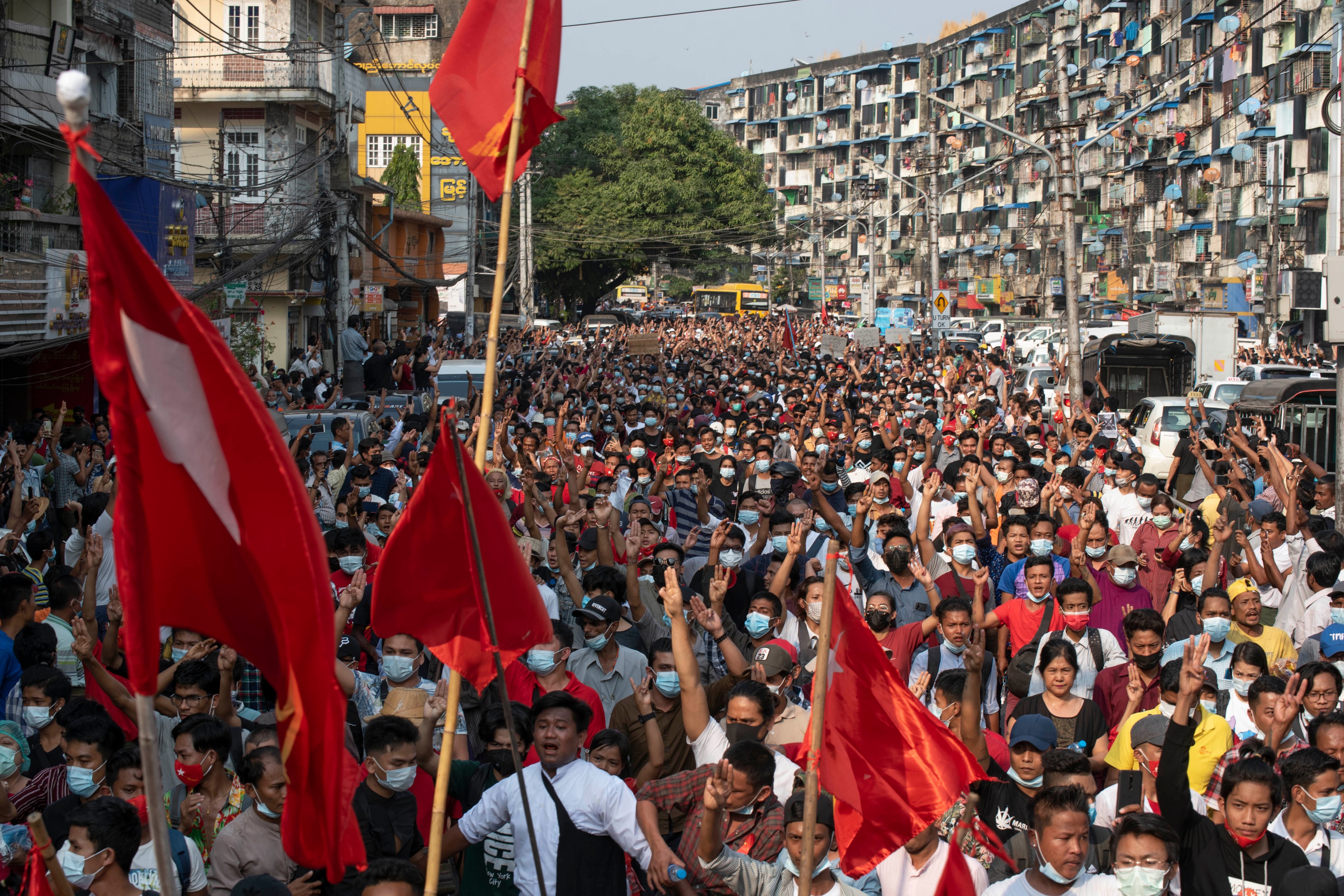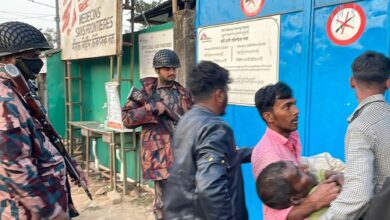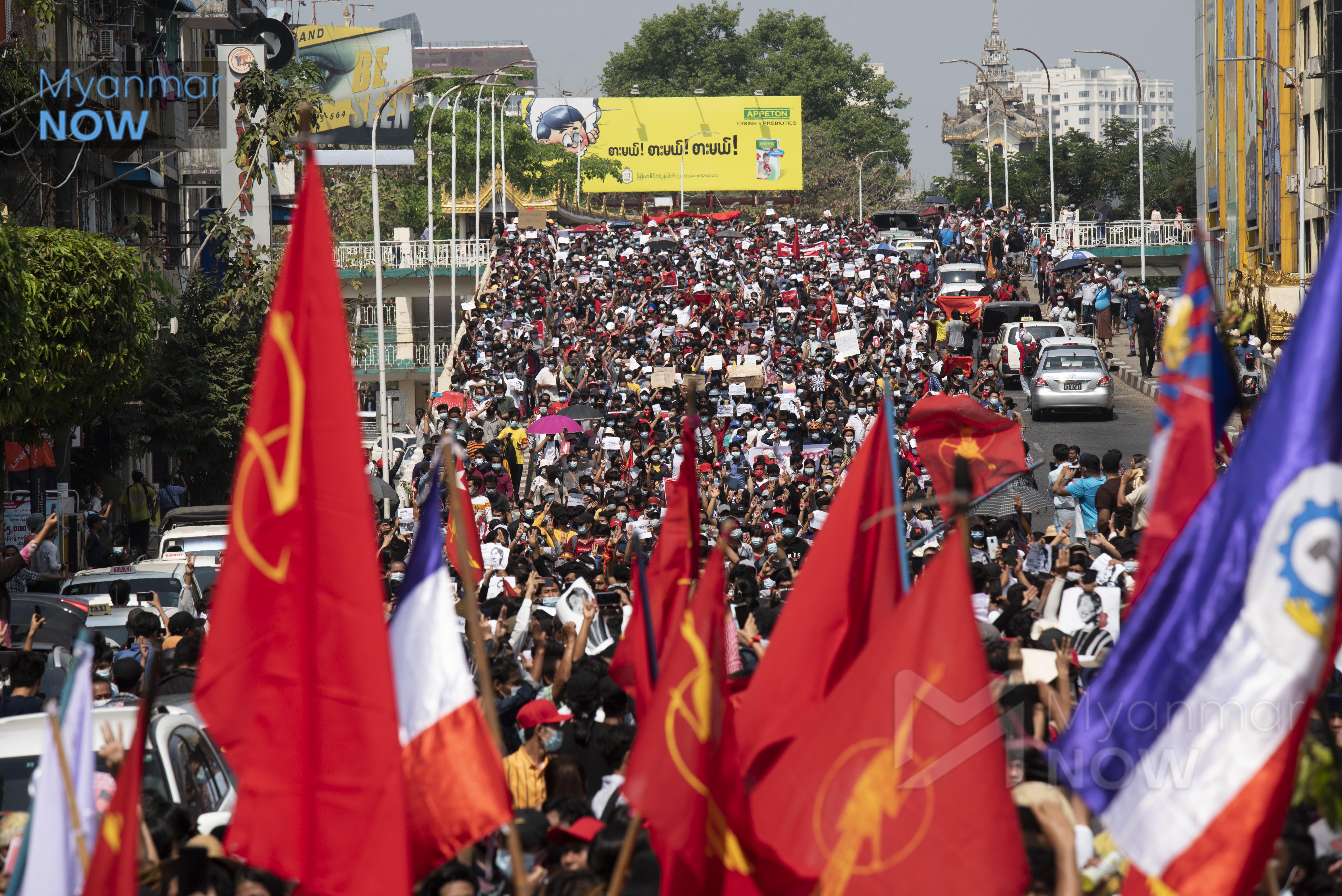
Hundreds of thousands of anti-coup protesters in cities across Myanmar took to the streets on Sunday morning calling for an end to military rule and the release of State Counsellor Aung San Suu Kyi and President Win Myint.
In the largest show of resistance to Monday’s military coup so far, protesters from around Yangon marched to City Hall in the downtown core shouting slogans demanding that the army give up power.
The protesters, led by members of the Confederation of Trade Unions in Myanmar (CTUM) and the All Burma Federation of Student Unions (ABFSU), were mostly in their 20s and 30s.
They called for the restoration of democracy and chanted, “Down with the military dictatorship!” “Long Live the Democracy” and “Return the state power to the public!” as they marched through the city.
Wai Yan Phyo Moe, the vice-chair of the ABFSU, called the military coup an “unjust action” and said he would fight for democracy by every possible means.
“A group of people with weapons took away our public power unjustly. There were many examples of the coup in our history, too. The public, including students and monks, fought against it, sacrificing their blood,” Wai Yan Phyo Moe told Myanmar Now.
“We still haven’t reached our goal of democracy,” he added.

Many residents of Yangon joined the demonstrations, which organizers said attracted at least 150,000 people, while others showed their support by clapping and making three-finger salutes—a gesture inspired by the Hunger Games movies and made popular as a symbol of defiance against tyranny during protests in neighboring Thailand—from their houses and inside taxis.
A woman in her 60s who supported the demonstrations in her neighborhood told Myanmar Now the coup was “worse than death” for her, as it was the third she had experienced in her lifetime.
“I’d rather be dead than live through military rule again. You can do nothing but nod under the dictatorship,” she said.
Myanmar was ruled by a series of military juntas from 1962 until 2011. Following the 2010 general election, which Aung San Suu Kyi’s National League for Democracy (NLD) boycotted, a quasi-civilian government led by former general Thein Sein was formed.
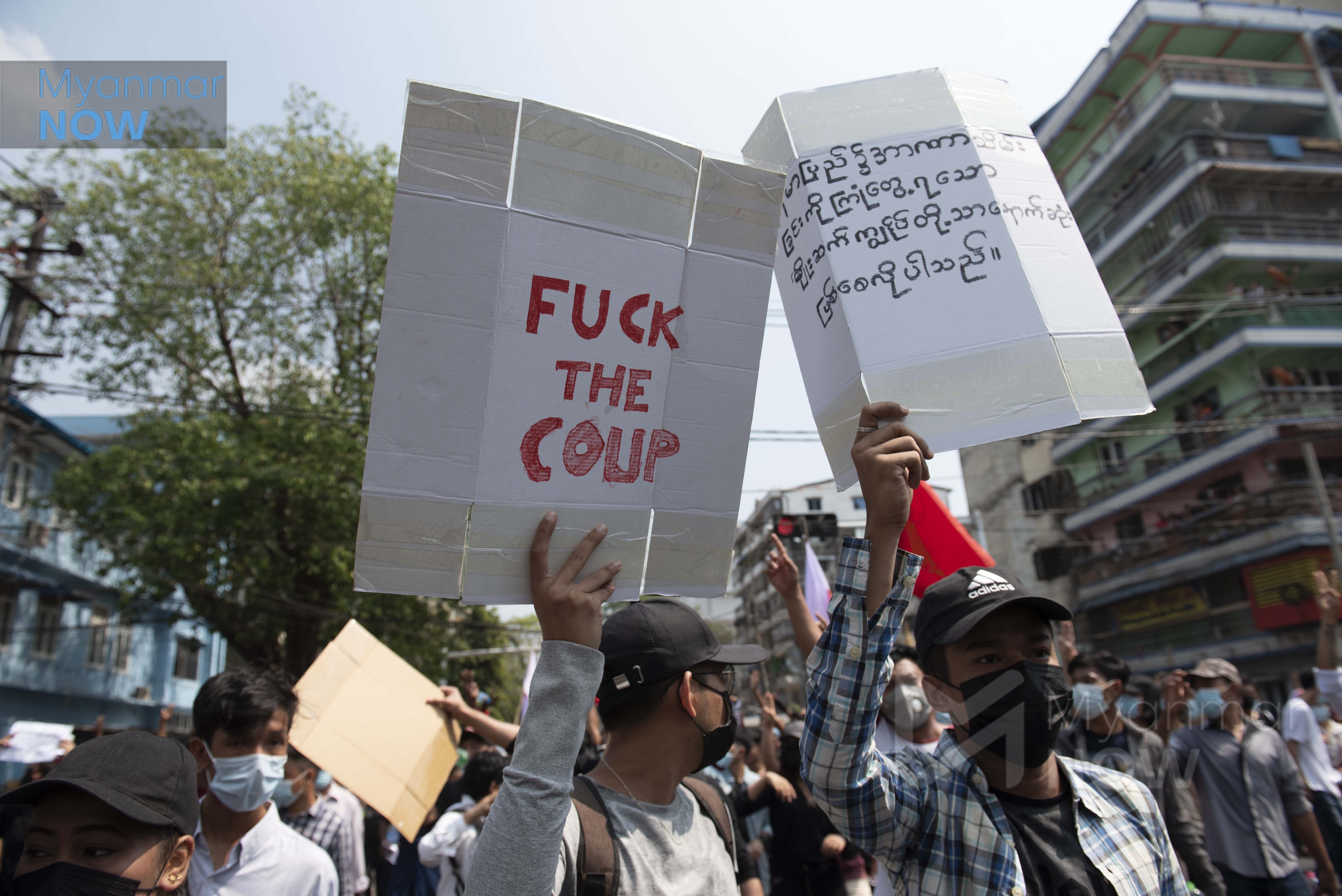
Min Ko Naing, one of the leaders of the massive nationwide pro-democracy uprising of 1988, briefly appeared at the City Hall area, where protesters were gathering at around 1pm, and cheered the crowd.
Nay Soe Maung, a son-in-law of Myanmar’s former dictator, Senior General Than Shwe, posted a photo of himself supporting the demonstration on Facebook on Sunday afternoon, saying that as a retired public official, he stood together with the public and the truth.
In the late afternoon, the anti-coup protesters marched to the United Nations’ Myanmar office in Yangon chanting “Free Daw Aung San Suu Kyi.”
As a sign that the anti-coup movement is spreading throughout the country, protests were also held in the capital Naypyidaw and Myanmar’s second-largest city Mandalay on Sunday, as well as in smaller centers such as Lashio, Moulmein, Dawei, Mogok, and Pyin Oo Lwin.
The military seized power early Monday morning, just hours before the Lower House was set to convene and certify the results of last year’s November 8 election, which the NLD won in a landslide.
The NLD’s leader, Aung San Suu Kyi, and President Win Myint were among dozens of lawmakers who were arrested in pre-dawn raids that also targeted dissidents.
Suu Kyi and Win Myint are both currently facing charges that could land them in prison for up to three years.
Soon after removing Win Myint as president, the military appointed its handpicked vice president, former general Myint Swe, to replace him.
As acting president, Myint Swe declared a one-year state of emergency and transferred power to the commander-in-chief, Senior General Min Aung Hlaing, who now heads the newly formed State Administrative Council.
The new ruling council was formed on Tuesday and consists mostly of military generals.
It also includes ethnic members such as Phado Man Nyein Maung, a former leading figure in the Karen National Union, and Aye Nu Sein from the Arakan National Party.
Thein Nyunt and Khin Maung Swe, both former members of the NLD who split from the party to form the National Democratic Force in 2010, are also on the council.
In a broadcast on the military-run Myawaddy television station, the new regime announced that general elections would be held a year from now, with power being handed over to the winning party.
The military claimed it had found over 10 million irregularities in voter lists used during last year’s election, which it said could have resulted in vote-rigging.
Since the coup, residents of many cities across the country have registered their anger at the military takeover by taking part in civil disobedience campaigns and banging pots and pans—a traditional gesture to drive away evil spirits.
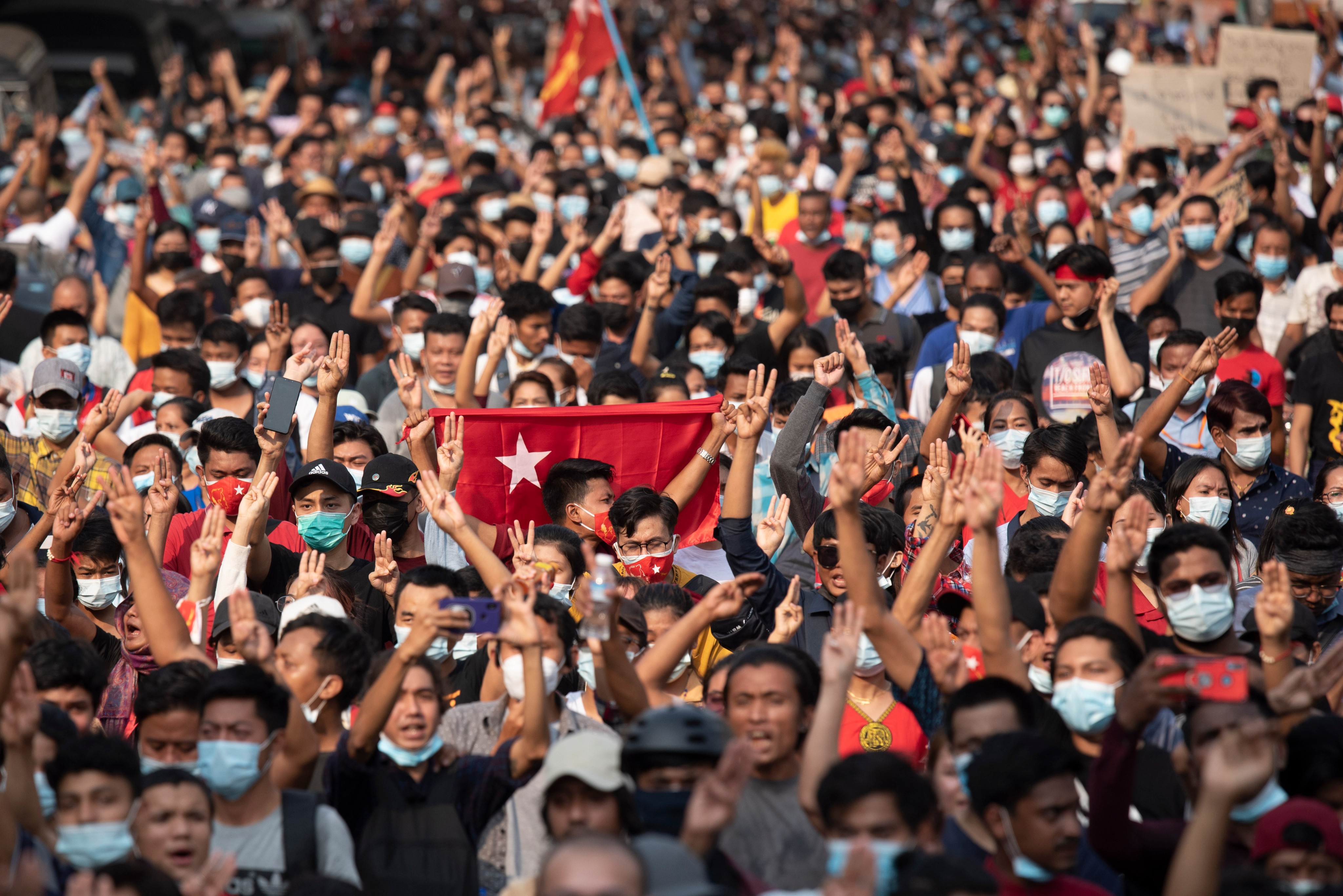
Medical staff at many public hospitals and government employees at some ministries also took part in the civil disobedience campaign by staging walkouts.
A few days after the coup, the Ministry of Transport and Communications, now controlled by the new regime, ordered telecoms operators and internet service providers to temporarily block access to Facebook, and then Twitter, to curb the anti-coup movements on the platforms. On Saturday afternoon, internet service was cut off again.
During the internet blackout on Saturday night, rumours that Aung San Suu Kyi had been released spread across Yangon and met with jubilation, but later proved to be false.
Internet connection was restored on Sunday afternoon but it is uncertain when it will get blocked again.
